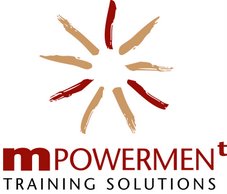Maple Leaf recalls wieners, citing incomplete listeria testing
Maple Leaf Foods has voluntarily recalled hundreds of cases of wieners that had not completed tests for the listeria bacteria species.The affected products were shipped to Eastern Canada, mostly to Ontario, Maple Leaf spokeswoman Linda Smith told CBC News.
People who have purchased 450 gram packs of Shopsy's Deli Fresh All Beef Frankfurters (product code 20730 and UPC 6487520730, best before date of April 22 and 23) and Maple Leaf Hot Dogs (product code 22356 and UPC 6310022356, best before date of April 23) are advised not to consume them.
Smith said 1,100 cases of wieners were quarantined for a second round of testing at a plant in Hamilton, Ont., but they were mistakenly shipped out prematurely. Initial testing revealed a partial positive result for a listeria species, Smith said. Maple Leaf says it tests for all six listeria species, not just Listeria monocytogenes.
It is not known whether the recalled wieners have tested positive for Listeria monocytogenes, a species that can be fatal in humans and was blamed for last year's deadly listeriosis outbreak.
More listeria-related recalls likely: McCain
"Unlike other situations, this event occurred as a direct result of human error and did not uphold our stringent industry leading protocols," said Michael McCain, president and CEO of Maple Leaf Foods.
Smith said the recalled shipment is small — there are 12 packs of wieners in each case. She estimated that each pack contains between 10 and 12 wieners. Maple Leaf expects to have all the recalled wieners in its possession by tomorrow morning at the latest, she said.
The company said the wieners are being taken off shelves "immediately," and that the Canadian Food Inspection Agency is overseeing the recall. Maple Leaf said no illnesses were reported as a result of consuming the wieners, and that "the risk to human health is extremely low."
"As we have seen with the wide range of food products which have been recalled to date in 2009, as enhanced surveillance becomes more pervasive in the food industry, positive listeria findings and related recalls will occur more frequently," said McCain.
"This should be regarded positively as it provides assurance that the industry and government are acting swiftly to protect public health."
According to the Canadian Food Directorate, one to 10 per cent of all prepared food contains listeria.
Maple Leaf is still dealing with fallout from the company's involvement in last year's listeriosis outbreak. The deaths of 17 people were linked to meat contaminated with Listeria monocytogenes produced at a Maple leaf plant in Toronto last summer.






